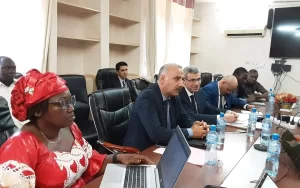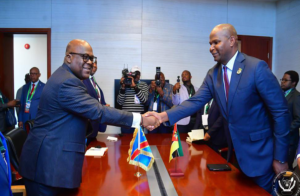Sahel: A look back at the shared ambitions of the AES countries

In a bold step toward deeper regional integration, the recent meeting of the foreign ministers of Mali, Niger, and Burkina Faso in Bamako has set the stage for an ambitious vision: the creation of a federation encompassing these three nations.
This proposal goes beyond the conventional notion of an alliance, aiming instead for a comprehensive political and economic union.
The final communiqué from the meeting made this historic goal clear, laying the groundwork for an ambitious push towards greater sub-regional integration.
The ministers discussed the need to harmonize their positions on African and international issues, while also strengthening ties between elected officials, women’s associations, and civil society groups across the three countries.
Expressing a strong commitment to overcoming shared challenges and seizing collective opportunities, the foreign ministers outlined a vision for a federation that would not only enhance economic and political cooperation but also serve as a model for other integration initiatives across Africa.
To achieve this ambitious goal, the ministers identified three fundamental pillars: diplomacy, defense, and development.
These pillars are seen as essential to consolidating political and economic integration between Mali, Niger, and Burkina Faso.
Diplomacy was highlighted as a critical tool for aligning the three countries’ positions on key issues at both African and international levels.
By adopting common stances, the nations aim to amplify their influence and diplomatic weight.
The ministers agreed to increase consultations and joint initiatives to ensure they speak with one voice in international forums.
Cooperation in defense is considered crucial for ensuring regional security and stability.
The ministers discussed the need to strengthen military partnerships and enhance joint defense capabilities to effectively combat security threats, particularly terrorism and armed groups.
The idea of a joint military force was proposed as a potential solution to address cross-border security challenges.
Economic and social development constitutes the third pillar of this integration effort.
The three countries plan to implement harmonized economic policies and launch joint development projects to spur growth and improve living conditions for their populations.
Infrastructure, education, and healthcare were identified as priority sectors for collaborative investment.
The initiative taken by the foreign ministers of Mali, Niger, and Burkina Faso represents a significant step towards sub-regional integration.
By strengthening political, economic, and social ties, these countries aim to build a federation that could act as a catalyst for broader integration within the Economic Community of West African States (ECOWAS).
This effort could also inspire other regions of the continent to explore deeper forms of cooperation and integration, contributing to the realization of the African Union’s Agenda 2063, which envisions an integrated, prosperous, and peaceful Africa.
Titi KEITA











